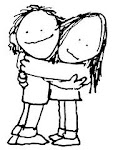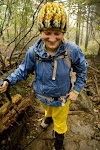



Summer approaches like a runner from the bullet of a gun and the garden is an explosion of edible greens. I just finished reading “The Tracker” by Tom Brown Jr – a perfect segue into becoming ever more attentive to the growing things and hatching swallows and croaking frogs as the summer creeps along. I now begin to delve into “A New Earth” by Eckhart Tolle. Fighting within myself to express what I feel deep inside is always a challenge. I do what I know how. I speak and I write in hopes of articulating and thus reflecting upon the “deep down”. I use words (as I am now) and simple sounds produced by the vocal chords I was taught to use when I was young to convey the meandering development of my sense of self.


Tolle asks me, and in turn I ask you if “you believe some combination of such basic sounds could even explain who [we] are or the ultimate purpose of the universe or even what a tree or stone is in its depth?” To say the least, our words, as Tolle puts it, “no matter whether they are vocalized and made into sounds or remain as unspoken thoughts, can cast an almost hypnotic spell upon [us]. [We] easily lose [ourselves] in them and then become hypnotized into implicitly believing that when [we] have attached a word to something, [we] know what it is. The fact is: [we] don’t know what it is, [we] have only covered up the mystery with a label” (pg. 25-27). When two people learn about each other, bull-shit pushed aside, they undoubtedly recognize and experience something superior than words can express. Call it a connection of energy, a synergistic exchange, whatever you call it, in the process of sharing, you will inevitably have to confront your inner self and deal with it how you will. Through habit, through custom, through obligation or through enlightenment, some of us will have a ways to go.
Last weekend, I joined a flock of native English teachers on a beach bound fieldtrip to embrace an awesome display of culture presented in the Dano Festival. I asked our bi-lingual guide “우 리 무 엇 할 거 요 - u-ri mu-eot hal ko-yo?” (in English, “what are we doing?), as I followed a weaving tour in and out of museums and kiosks admiring the display of ancient hair washing, mask dancing and giant swing competitions. In Gangneung, Gangwon-do, not only did I gather a handful of new Korean phrases to express my wit, I also was acquainted with the history of one of Korea’s intangible cultural events as designated by UNESCO in 2005. The festival itself, and not just the budding green trees were in the mood to welcome summer. In the spirit of hoping for favorable farming weather, a whole seaside village prepared its welcoming festivities.
One particular fascinating demonstration of time-honored art was the Pansori. Pansori communicates the tradition of Korean satire and love-stories through the masterpiece of oral story telling in opera form. On stage, there is one signer and one drummer. They engage in an interchange of percussion and vocal acknowledgements that recognizes a story being told. As the singer becomes engulfed in the story itself, her passion and energy are expressed through emotional intensities. The performance I saw in Gangneung was mesmerizing and captivating in its ardor.
The patriotism of the Korean culture is more evident as traditional festivals are celebrated. Koreans are confident being connected to a culture unique from their Asian counterparts. They are proud of their traditions and observe them year after year with celebratory excellence. They are willingly excited to invite the 위 국 - wey-guks (foreigners) into their rituals as a way of showing off their cultural pride. I noticed again, not for the first time the ritualistic symbolism engrained in the hearts and mind of Korean people.
Last weekend, I joined a flock of native English teachers on a beach bound fieldtrip to embrace an awesome display of culture presented in the Dano Festival. I asked our bi-lingual guide “우 리 무 엇 할 거 요 - u-ri mu-eot hal ko-yo?” (in English, “what are we doing?), as I followed a weaving tour in and out of museums and kiosks admiring the display of ancient hair washing, mask dancing and giant swing competitions. In Gangneung, Gangwon-do, not only did I gather a handful of new Korean phrases to express my wit, I also was acquainted with the history of one of Korea’s intangible cultural events as designated by UNESCO in 2005. The festival itself, and not just the budding green trees were in the mood to welcome summer. In the spirit of hoping for favorable farming weather, a whole seaside village prepared its welcoming festivities.

One particular fascinating demonstration of time-honored art was the Pansori. Pansori communicates the tradition of Korean satire and love-stories through the masterpiece of oral story telling in opera form. On stage, there is one signer and one drummer. They engage in an interchange of percussion and vocal acknowledgements that recognizes a story being told. As the singer becomes engulfed in the story itself, her passion and energy are expressed through emotional intensities. The performance I saw in Gangneung was mesmerizing and captivating in its ardor.
The patriotism of the Korean culture is more evident as traditional festivals are celebrated. Koreans are confident being connected to a culture unique from their Asian counterparts. They are proud of their traditions and observe them year after year with celebratory excellence. They are willingly excited to invite the 위 국 - wey-guks (foreigners) into their rituals as a way of showing off their cultural pride. I noticed again, not for the first time the ritualistic symbolism engrained in the hearts and mind of Korean people.






